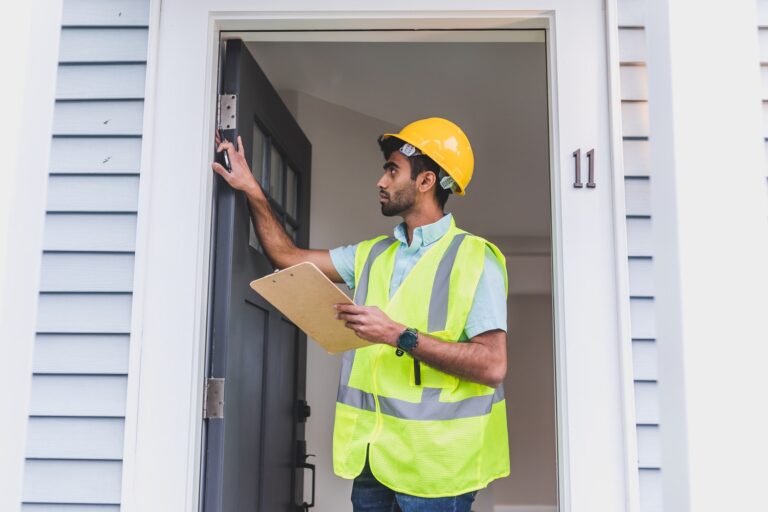13 Urgent Steps for Homebuyers to Take Immediately After Purchase

There are critical things a buyer must perform during the due diligence period. For most people, buying a property will be their most significant expense.
This article will highlight the key things every buyer, whether a first-time homebuyer or a real estate investor, should do when buying a house. Below is a due diligence checklist homebuyers should do in every real estate transaction.
What is Due Diligence?
Before diving into things to do during the due diligence period, it’s essential to understand what due diligence is. In short, due diligence occurs before two parties enter an agreement and are used to confirm certain assumptions.
In the case of real estate due diligence (or estate due diligence), buyers take time to inspect the property (or do a professional home inspection), do research, perform financial calculations and get comfortable with the purchase before finalizing offer agreements.
Due diligence occurs in almost all real estate transactions. So whether you’re buying a residential or commercial real estate property, you’ll likely need to do due diligence on any real estate purchase.
What is the Due Diligence Period?
The due diligence period is when buyers investigate many aspects of a property to determine whether or not they want to buy it. The due diligence period begins at the due diligence date and ends at the closing date.
As long as you cancel your contract before the due diligence date, you could be entitled to any earnest money deposit you put in, but after that date, you could be subject to penalties.
Why is Doing Your Due Diligence Important?
Due diligence protects the buyer; if they discover some issue with a house they are interested in, they may cancel the purchase without penalty.
Due diligence can keep them from making a costly mistake and purchasing a house with some significant issues.
What Are Homebuyers Responsible For?
As a homebuyer, there are many things that you’re responsible for during the due diligence period. Some of the significant categories to note are:
- Primary research – You will be responsible for researching the house, like zoning laws, permits, titles, traffic, noise, demographics, earthquake faults, etc.
- Economic factors – If you are a real estate investor, it’s your responsibility to investigate the market, supply and demand for houses, comparable rents, vacancies around the area, property taxes, and insurance.
- Hiring professionals – A lot of due diligence requires the help of consultants, lawyers, accountants, and even engineers. You are responsible as a homebuyer for hiring these people and enlisting their support.
13 Critical Things To Do During The Due Diligence Period
Here are some of the most important things to do during the due diligence period.
It may seem like a lot to squeeze into a due diligence period for a couple of weeks, but you must pay close attention to not miss anything crucial on this list.
1. Research Home Prices
Before someone starts buying a home, they should know what homes are selling for in the area where they are interested in living. They may be surprised that home prices aren’t what they expected. As a result, they might have to change their criteria or look for houses in other areas.
2. Look up Taxes
Many buyers are surprised to find just how much property taxes are. Fortunately, buyers can do a little research to determine how much taxes are for homes they may potentially buy.
3. Find a Seasoned Real Estate Agent
A real estate agent is an essential part of buying any home. They will alert buyers when new properties are available that meet their criteria. In addition, they are there with them virtually every step of the way during the home-buying process.
A seasoned real estate agent can relieve the stress of working directly with the seller; instead, they can work with the listing agent and handle the negotiations.
4. Find a Lender
Many individuals will need to borrow money when they want to buy a property. For example, a lender will use various criteria, such as credit scores and paystubs, to determine how much of a home loan a lender will approve.
5. Read Disclosures
There will be some disclosures in the paperwork that a buyer needs to sign. However, buyers must read these disclosures thoroughly to understand the agreement between them and the seller.
6. Home Inspection
A licensed inspector will look for any issues with a home the buyer is interested in purchasing during the inspection process. In addition, an inspector will inspect common areas for a general inspection, including the roof, electrical, plumbing, foundation, appliances, and more.
The amount of time of an inspection can range from two hours and four hours, depending on the size of the property.
Termite Inspection
Termites can be difficult to see for the average person, but they can quickly cause thousands of dollars worth of damage to a home. For this reason, homebuyers need to get a termite inspection before they purchase a property.
Lead-Based Paint
A lot of older homes have lead-based paint. Unfortunately, this paint can cause health issues, and many buyers get testing done on the house to check if lead-based color is present.
Radon Gas
This type of gas is harmful and can cause lung cancer. In addition, radon gas may be present in many homes, and buyers need to have testing done to ensure the environment is free of it.
Defective Drywall
Certain homes had defective drywall used when they were constructive. This type of drywall can cause health problems, and buyers need to have homes they want to be tested and inspected to see if builders use this type of drywall.
7. Cost of Repairs
After an inspection highlights any issues with the house, potential homebuyers need to determine if it’s worthwhile to take on the cost of repairs or renovations.
Investors who flip houses need to estimate the after-repair value after making improvements. If the profit margin is not wide enough to pay their contractor, taxes, etc., it may not be worth it to an investor.
8. Insurance
Homeowners Insurance
Buyers must purchase the right home insurance. It will give them the coverage they need if a natural or manufactured disaster occurs.
Dwelling Insurance
Those who will be renting out the property that they purchase need to purchase dwelling insurance. In addition, it will protect the landlord’s property by providing them with liability coverage.
Empty or Vacant insurance
It’s not uncommon for many individuals to buy a home, fix it, or resell it. Empty or vacant insurance will provide them the coverage they need if vandalism, theft, or fire occurs when the house is vacant.
9. Appraisal
Buyers that are financing a home will have to get it appraised. The appraisal determines how much the property is worth. Then, they will look at recent sales of comparable houses to come up with an estimation of the value of a home.
10. Title Search
The title cannot be transferred to the buyer if there are any claims or liens, so the seller needs to remedy any issues before they sell their property.
If you want to be extra safe, you may also want to ask your real estate broker about getting a home warranty.
11. Vacancies
For investors looking for a potential long-term investment property, researching vacancy rates is essential during the due diligence process. For example, if a property is in an area with a high vacancy rate, an investor needs to set aside a portion of the rental income as an expense to cover vacancies.
12. Zoning or Property Surveying
Properties are typically zoned so that builders can build only specific structures with the property lines. In addition, property surveying lets the buyers know precisely how large their property is.
Buyers planning to add to their real estate investment property or tear it down to replace it with another structure need to know its zoning and have it surveyed. If the city discovers work is done without permits or is not up to code, they can quickly shut down a project.
13. Homeowners Association Restrictions
Some neighborhoods have a homeowners association (HOA) which governs what homeowners can do with their property, such as the paint color of a house.
HOAs have a lot of restrictions as well as monthly fees. Thus, buyers need to be aware of the rules and the costs to determine whether or not they want to purchase the property. Additionally, an HOA can raise their fees at any impact, which can affect your overall housing costs.
How Long is the Due Diligence Period?
The time of it can vary. For example, the buyer and seller can negotiate the due diligence date, which is often less than 30 days; however, it will all depend on any issues a home inspector finds with the home. Something to keep in mind is that the due diligence period include weekends. So make sure to get your diligence period work done while accounting for the extra days.
Negotiating Repairs During the Due Diligence Period
When a home needs repairs, a buyer may be able to deal with the seller during the period of due diligence. For instance, a seller may be willing to lower the purchase contract’s asking price, knowing that the buyer will have to pay out of pocket for the repairs.
Due Diligence Fee vs. Earnest Deposit
Due diligence is a fee the buyer pays the seller that is usually non-refundable. The purpose of the due diligence fee is to compensate the seller for taking their home off the market while the buyer is doing due diligence.
In good faith, a buyer gives earnest money to the seller to show them that the buyer wants to purchase the home. The fee typically ranges anywhere from $500-$2,000, but this amount is negotiable, and the buyer puts it into an escrow account until closing.
This money goes towards the home’s down payment or closing costs. It’s typically anywhere from 1%-3% of the house’s purchase price.
What Happens When You Don’t Want the Property?
After the due diligence period ends, an individual may decide they don’t want to buy a property for various reasons. They usually won’t get their earnest money deposit back, and any spent to pay for inspections or appraisals.
However, with the proper contingencies in the purchase agreement, a homebuyer can get their earnest money back if they back out of the sale before any contracts are signed.
For example, a contingency can be that the purchase price must meet or exceed an appraisal’s valuation. For instance, if the appraisal value is below the purchase price, the buyer can walk away from the deal without penalty.
Can You Get Your Due Diligence Money Back?
Individuals typically can’t get their due diligence money back if they decide they want a home.
Commercial Real Estate Property Due Diligence
For those who want to buy a commercial real estate property, their due diligence will consist of potential risks affecting their ability to profit and causing their business to fail.
Land Due Diligence
Unlike residential and commercial properties, buyers purchasing land must look for issues like water and gravel rights and access to their property.
Final Thoughts
Buying a house is nowhere near an inexpensive purchase. Building a sufficient sinking fund to cover the down payment can take years.
Therefore, buyers should conduct proper research before setting foot inside a potential home during the due diligence period.
A buyer should purchase a home they are confident they can pass down as generational wealth to their children versus having regrets filled with a laundry list of repairs.






